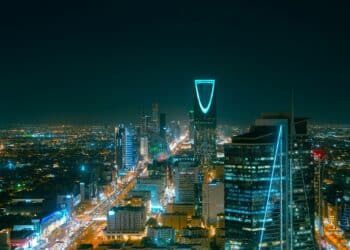As part of Saudi Arabia’s Vision 2030, the region has announced plans to introduce a Green Card system.
The news comes in the wake of Deputy Crown Prince Mohammed bin Salman announcing on Monday that the new residence system would be introduced for Muslims and Arabs within the next five years as a source of revenue.
The introduction of the new system will be subject to the Shoura Council’s approval following a in-depth study of the initiative, the plan will also be discussed at the body’s full sessions, in the same way other legislation is studied before being passed to the cabinet for approval. 
Speaking to Hotel News ME, at this year’s Arabian Hotel Investment Conference regarding the Green Card announcement and Saudi’s 2030 vision, Carlos Khneisser, vice president of development, Middle East and North Africa for Hilton Worldwide said: “News from the Crown Prince is really encouraging. The green card will attract foreign investment into the Kingdom, and many expatriates will take advantage of the new program. At the same time Saudi will benefit from the fees paid by expats to have the Green Card.”
With Hilton Worldwide already posing as a regional leader in Saudi, having signed 5,500 rooms in 2015 alone with the majority of planned inventory for the Kingdom, Khneisser added: “The relaxed visa restrictions will also drive visitors to our properties in Saudi from new markets, namely Kuwait and Bahrain. Additionally, with Egypt just across the Red Sea, Saudi could look to to become not just a destination driven by religious tourism, but one for leisure and cultural purposes too.”
With the system expected to generate around $10 billion annually through reduced remittances and other sources, besides bringing in billions of dollars in foreign investment according to analysts, the plan will also abolish the existing sponsorship system, with expatriates required to pay zakat and possibly value-added tax.
Discussing other recent developments in Saudi, Khneisser added: “Alongside the Green Card, with Saudi opening up its stock-market, previously the only way for foreign investors to buy Saudi stocks was through participatory notes and exchange-traded funds, now the move marks the biggest economy in the Middle East seeking to reduce its reliance on oil income which accounts for about 90% of government revenue. In line with Saudi’s vision the region is coming along in leaps and bounds.”


































































